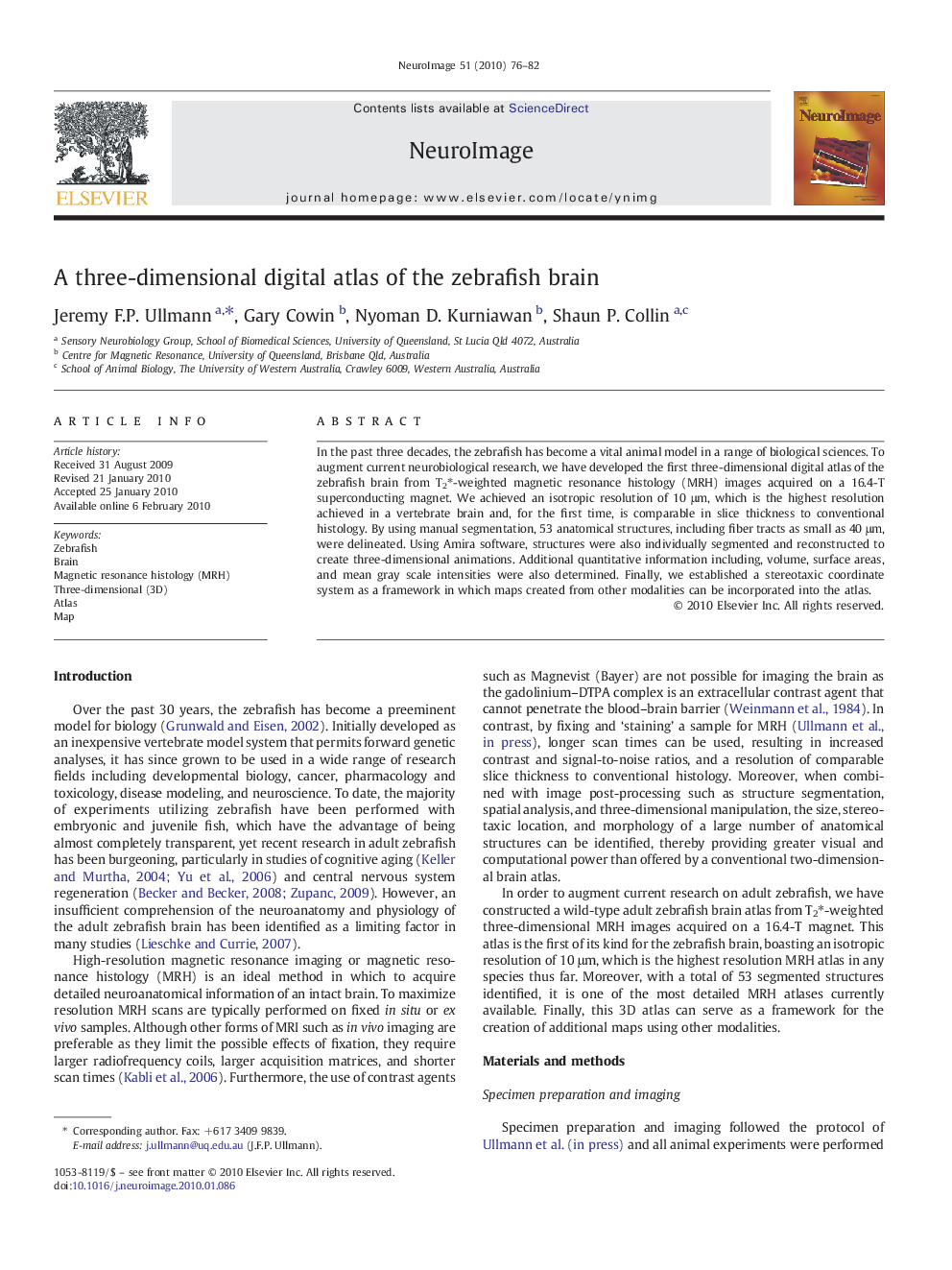| Article ID | Journal | Published Year | Pages | File Type |
|---|---|---|---|---|
| 6036103 | NeuroImage | 2010 | 7 Pages |
Abstract
In the past three decades, the zebrafish has become a vital animal model in a range of biological sciences. To augment current neurobiological research, we have developed the first three-dimensional digital atlas of the zebrafish brain from T2â-weighted magnetic resonance histology (MRH) images acquired on a 16.4-T superconducting magnet. We achieved an isotropic resolution of 10 μm, which is the highest resolution achieved in a vertebrate brain and, for the first time, is comparable in slice thickness to conventional histology. By using manual segmentation, 53 anatomical structures, including fiber tracts as small as 40 μm, were delineated. Using Amira software, structures were also individually segmented and reconstructed to create three-dimensional animations. Additional quantitative information including, volume, surface areas, and mean gray scale intensities were also determined. Finally, we established a stereotaxic coordinate system as a framework in which maps created from other modalities can be incorporated into the atlas.
Related Topics
Life Sciences
Neuroscience
Cognitive Neuroscience
Authors
Jeremy F.P. Ullmann, Gary Cowin, Nyoman D. Kurniawan, Shaun P. Collin,
